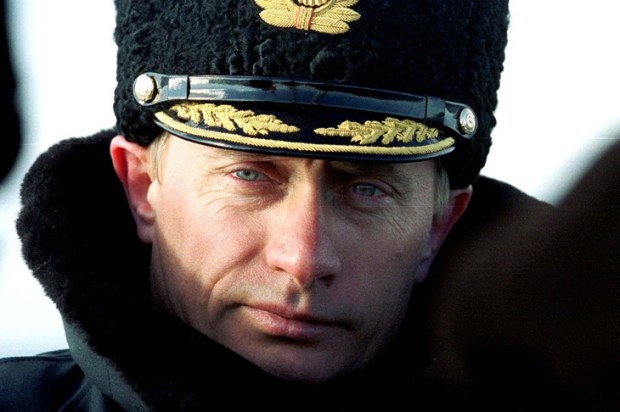The Bayeux Tapestry depicted the September crossing of William, Duke of Normandy’s, forces to England with 7,000 men and 2,000 horses in 1066.
In 2025, there are more men, resembling Saladin’s forces in the Crusade, making their way to England (without horses).
They are yet to stake a claim to the English throne.
This modern crossing throws up two issues of little import to the men of Hastings. One is the monetisation of crises. The second is the sticky question of how international law is a victim of the succession of world crises.
Crises are always monetised. The prime example is war. It is no wonder that the 20th Century was the century of total war. Albert Hirschmann noted in his National Power and the Structure of Foreign Trade that trade was a zero-sum game of winners and losers. Rather than the beneficent liberal view of Adam Smith, which he argued that trade was an exchange of wealth for all concerned. Hirschmann’s analysis emphasised the need to reach the ‘hegemon’ status. To become a dominant power. To reach hegemonic status, a forceful military spending was necessary. This guided the Neoconservative philosophy of the US post-second world war and the era of dollar supremacy. The ‘threat’ of Russia and Iran now provides a huge boost for the defence industry.
Therefore crises, whether they be war or Covid, provide ample opportunity for extractive players. It coincides with the new era of State Capitalism: capital works in a symbiotic relationship with state actors, for example, in the civil service, for extractive consultancy. The managerial class see the State sector as an abundance of riches, whereas in previous generations, the middle classes flocked to the private sector – now the sons and daughters of suburbia flock to the civil service. The Covid Industry provided an opportunity for Public-Private gain. According to the National Audit Office, £376 billion was spent on a mixture of PPE purchasing, furlough, and ‘test and trace’. The problem of state-induced crisis industries is that they are primarily extractive rather than Keynesian. There is little added value or economic boost for economies (besides the contentious health benefits).
The immigration debate in the UK is another crisis turned into extraction. However, this has to be tempered with the obvious responsibilities the UK faces in terms of international law.
Of course, the Normans would not have been rescuing English sailors in distress off the coast of England. Times have changed and there is a widespread belief in Opinio Juris (customary law based on state practice) in that people in distress should be rescued.
Within International Maritime Law, principally the United Nations Convention on the Law of the Sea (UNCLOS) and the International Convention for the Safety of Life at Sea (SOLAS), vessels are legally obliged to rescue persons in distress at sea.
Although migrants are entering the UK through unauthorised routes, they cannot be turned away at sea if in distress – this includes dinghies and small boats. The principle of ‘non-refoulement’ in international law prohibits the return of migrants to a place where they may be in harm. The 1951 Refugee Convention, to which the UK signed up, means individuals can seek asylum from persecution. Even if they arrive irregularly. They cannot be penalised if they present themselves to authorities ‘promptly’ and have a valid asylum claim.
The UK’s kickback against this – the Illegal Migration Act 2023 aims to ‘detain and deport’ those who enter the UK illegally. Similarly, the Nationality and Borders Act 2022 established a two-tier asylum system, in order to penalise people who arrive via irregular routes (like small boats) even if their asylum claims are perhaps valid. These examples highlight the ongoing dilemmas within international law and how it conflicts with the notion of state sovereignty. Article 31 of the Refugee Convention protects refugees escaping persecution who may enter a country illegally.
The UNHCR has said the Nationality and Borders Act ‘breaches the UK’s obligations’ under the Refugee Convention and sets a damaging global precedent. The more it appears that states flaunt international law, the more damaged the system becomes. We now have situations worldwide where clear breaches of international law occur without redress due to the limited power of coercion of the UN and ICJ. Therefore, the situation is more nuanced than Stop The Boats. Starmer, increasingly under fire in the UK for a chaotic period of government, faces an electoral backlash unless effective policies can counter the perception of an invasion akin to the Bayeux Tapestry. The new policy this week of ‘one in, one out’ signed with Macron seems to be more about papering over the cracks.
There is some justice to a recent Syrian’s claim that he is only in the UK because his country has been destroyed by the irrational policies of successive US Neocon policy and Russian power plays. International law appears to be akin to sticking fingers in the holes of the dam, whilst breaches keep popping up at the same time. Yet the plight of the sovereign nation state has to be the first policy of government. This being the nature of the Social Contract. Without that, government risks losing authority. Successive crises confirm common opinion that they are monetised and even engineered. Home Office figures in the UK state that 8 million GBP was spent daily on asylum seekers in 2024. Three billion GBP annually. Whole hotel industries claiming millions of pounds every day with inflated prices. The usual ‘recognised providers’ line up to fleece the state. On the day of the Starmer-Macron ‘Entente Cordiale’ 500 boats crossed over to the UK. Starmer increasingly appears like Harold, with an arrow to the eye, whilst Macron and the EU treat the UK with the post-Brexit disdain of William the Conqueror. Alas poor Starmer, I knew him well…
Brian Patrick Bolger LSE, University of Liverpool. He has taught International Law and Political Philosophy at Universities in Europe. His new book, ‘Nowhere Fast: Democracy and Identity in the Twenty First Century’ is published now by Ethics International Press. He is an adviser to several Think Tanks and Corporates on Geopolitical Issues.

























